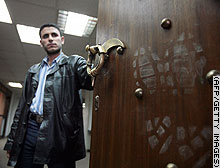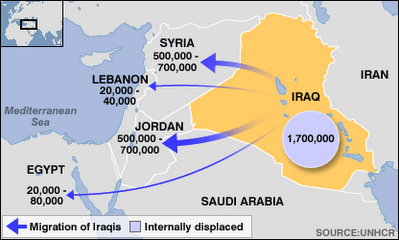BBC reports a sharp change in US-Iraq strategy: US leaders have
Bear in mind that the first round of talks will only be an "ice-breaker," involving "non-ministerial level" representatives. Even still, the surprise announcement of the regional talks is a very heartening development to those seeking an end to the crisis in Iraq. Just a few months ago, whether the administration would enact any of the Iraq Study Group recommendations was a matter of concerned speculation. The recommendations calling for the US to engage Iraq's neighbors, which include Syria and Iran, seemed particularly likely to go unheeded. For the last three years, the US has been diplomatically estranged from Iran and Syria, never once engaging them in dialogue."The administration of President George W Bush has been under pressure in Congress and from the findings of the bipartisan Iraq Study Group to include Syria and Iran in dialogue to stabilise Iraq.
"Ms Rice said: 'Success in Iraq requires the positive support of Iraq's neighbors. This is also one of the key findings of the Iraq Study Group.'"Leon Panetta, a member of the [Iraq Study Group], said the announcement was an important step towards bringing stability to Iraq."
Luckily, the chorus of voices calling for diplomacy and other non-military solutions for Iraq is being heard in Washington. Let's hope our leaders continue to listen.










